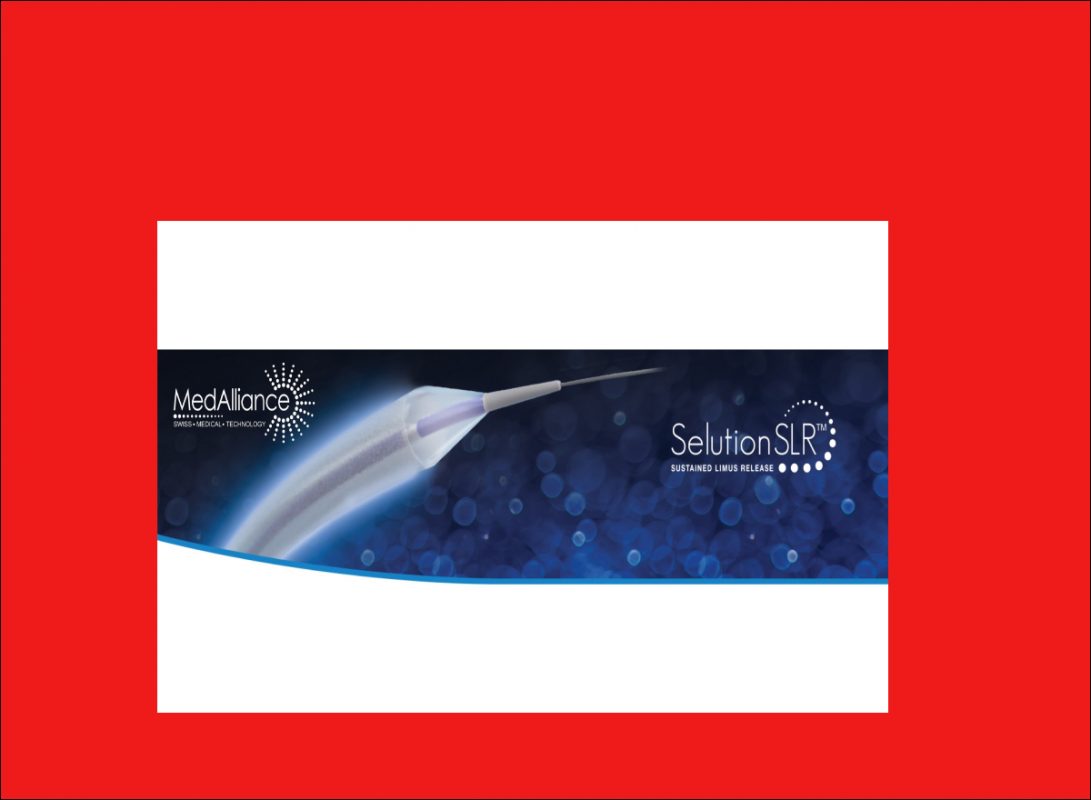MedAlliance announced the enrollment of the first patient in the ground-breaking coronary randomized controlled study “SELUTION DeNovo”. The company notes this study utilizes SELUTION SLR™, a novel sirolimus drug-eluting balloon [DEB], versus a limus drug-eluting stent [DES].
This is the largest DEB study ever initiated, with over 3,300 patients to be enrolled at approximately 50 sites in 15 countries. Patients are randomized before any vessel preparation to reflect current medical practice and to reduce bias. The objectives of the study are to demonstrate, at both one and five years, non-inferiority and subsequently superiority for target vessel failure (TVF).
This study is designed to change medical practice, as the majority of denovo coronary vessels are currently treated with a permanent metallic stent. The SELUTION SLR elutes sirolimus for over 90 days, similar to a DES, but without leaving behind a metal scaffold, which has been associated with a complication rate of 2% annually.
“We are pleased to participate in a robust prospective randomized study, working with some of the leading institutions and operators in the world to answer these important questions for patients and physicians alike”, commented Principal Investigator Dr Juan F. Iglesias, Geneva University Hospitals, Switzerland. “We are excited to be the first enrolling center in this important study. Initial use of this novel DEB has demonstrated a high level of deliverability, especially in small vessels and side branches”.
“This study is the largest, most ambitious study ever initiated to understand the patient benefit of a DEB versus the latest generation DES. We hope to demonstrate that limus DEB can replace DES in most coronary denovo lesions, just as limus DES replaced paclitaxel DES”, added Jeffrey B. Jump, Chairman, and CEO of MedAlliance.
MedAlliance’s DEB technology involves unique MicroReservoirs made from biodegradable polymer intermixed with the anti-restenotic drug sirolimus. These MicroReservoirs provide controlled and sustained release of the drug for up to 90 days1. Extended release of sirolimus from stents has been proven highly efficacious in both coronary and peripheral vasculatures. MedAlliance’s proprietary CAT™ (Cell Adherent Technology) enables the MicroReservoirs to be coated onto balloons and adhere to the vessel lumen when delivered via an angioplasty balloon.
SELUTION SLR was awarded CE Mark Approval for the treatment of peripheral artery disease in February 2020 and for the treatment of coronary arterial disease in May 2020. The US FDA has awarded the SELUTION SLR with four breakthrough designations for coronaries, peripheral vascular, and AV Fistula indications.

